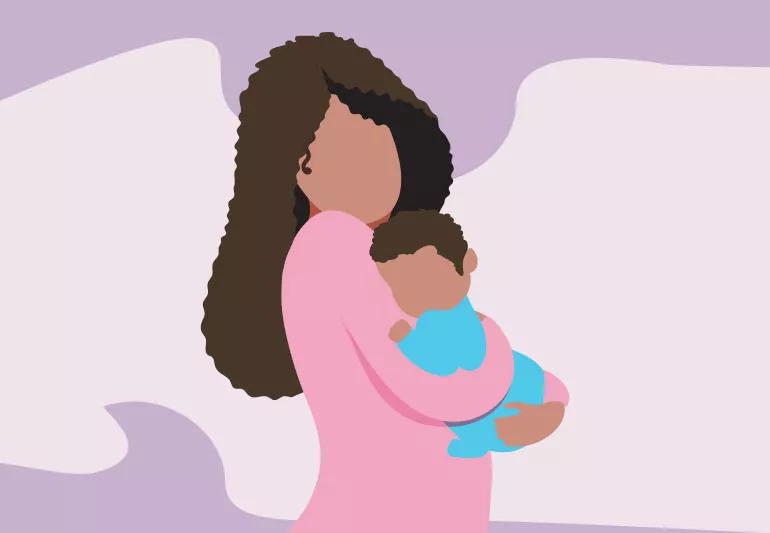The short answer from a registered dietitian

Image content: This image is available to view online.
View image online (https://assets.clevelandclinic.org/transform/00ef4b8c-e108-49fb-97a7-b1c55538897e/fastBreastfeeding-1144328194-770x553-1_jpg)
woman and newborn baby
A: Women who are breastfeeding have a need for more calories because those calories are being used to provide nutrients to the baby. If you’re low on calories, it could affect your milk supply and energy level – both of which are not good for nursing moms.
Advertisement
Cleveland Clinic is a non-profit academic medical center. Advertising on our site helps support our mission. We do not endorse non-Cleveland Clinic products or services. Policy
So typically for women who are breastfeeding, I do not advise intermittent fasting.
However, in the later stages of breastfeeding, say if you’re feeding in the morning and evening and you’re not the primary source of your baby’s nutrition anymore, then you could probably incorporate some fasting towards the very tail end.
But I certainly do not recommend intermittent fasting during the very active breastfeeding period where you’re providing your baby’s main source of nutrition.
Until you’re done breastfeeding, your safest bet is to focus on a healthy diet and exercise plan.
– Registered dietitian Julia Zumpano, RD.
Advertisement

Delivered every Tuesday!
Sign up for our Health Essentials emails for expert guidance on nutrition, fitness, sleep, skin care and more
It's a letter about the news!

Every two weeks once
Sign up for our Health Essentials emails for expert guidance on nutrition, fitness, sleep, skin care and more.
Learn more about our editorial process.
Advertisement
When breastfeeding doesn’t go as planned, you may need to supplement with formula or donor breast milk — and that’s OK
Breastfeeding supplements can be a needless expense at best, and risky at worst
Typically, milk comes in a few days after birth and regulates around four weeks after delivery
From the football hold to the cradle hold, consider trying a variety of techniques
Gentle massaging, lying on your side and hand-expressing a little milk can help
Get your milk flowing by getting comfy, releasing stress and focusing on your baby
Popular myth says breastfeeding prevents pregnancy, but that’s not the whole story
With some exceptions, most are OK
Type 2 diabetes isn’t inevitable with these dietary changes
Applying a hot or cold compress can help with pain
Pump up your iron intake with foods like tuna, tofu and turkey